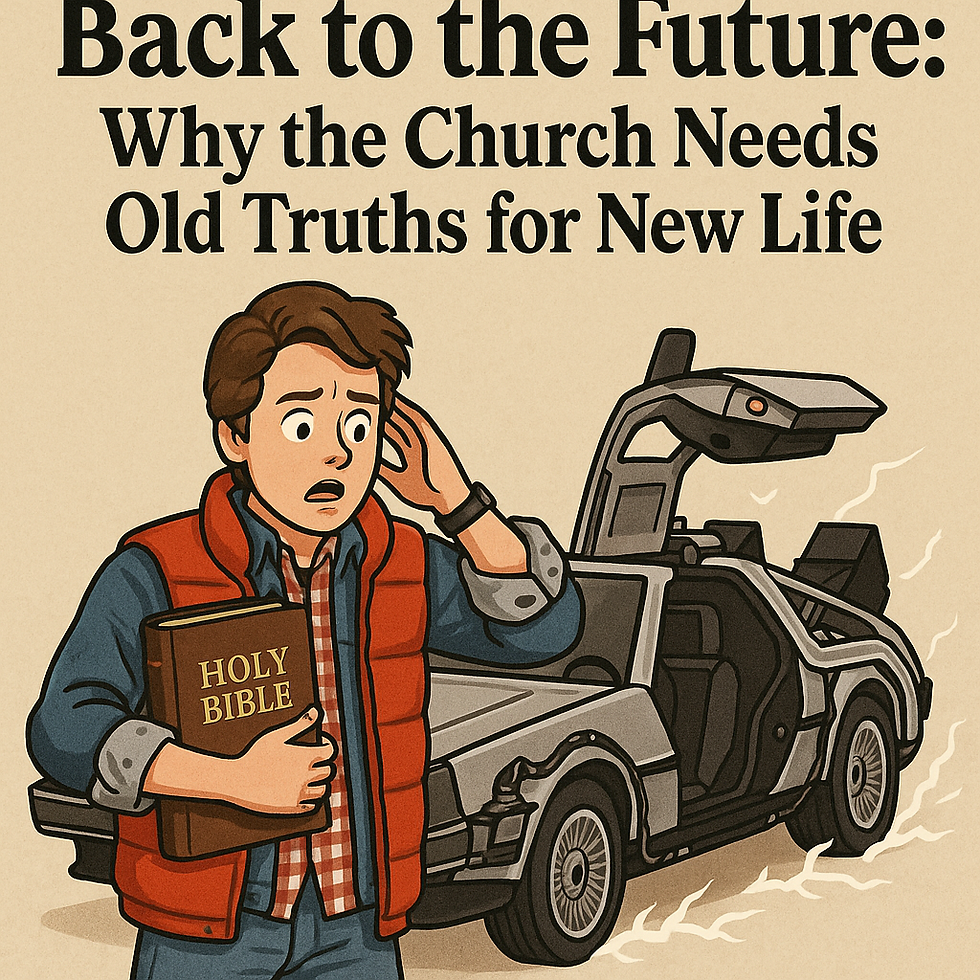When Ambition Replaces Shepherding: A Reflection on Three Church Controversies
- Jul 1, 2025
- 4 min read

Over the past few weeks, I’ve come across several videos that have deeply unsettled me. These weren’t the typical internet clickbait or overproduced rants, but rather sobering documentaries about real churches, real leadership, and real consequences—each one pointing to a growing pattern within the American church, particularly within the Southern Baptist Convention (SBC).
The first video I watched involved Summit Church and Faith Baptist Church in North Carolina. The second was a documentary titled “The Real David Platt,” and the third, though I can’t recall the exact name, dealt with First Baptist Church of Naples, Florida. Each story was different in detail but shared a common and troubling theme: a shift in church leadership toward what they call “kingdom work,” often at the expense of the local church they were entrusted to serve.
Before I go further, I want to be clear: I’m not a theologian. I’ve never worked in a church. I’m a blue-collar guy turned small business owner. So, it would be easy to dismiss my thoughts—and I wouldn’t blame you if you did. But as someone who has been part of SBC churches my entire life, I care deeply about what’s happening. And I think these stories deserve more attention than they’re getting.
A Tale of Three Churches
1. Summit Church and Faith Baptist Church
This one was especially hard to watch. The documentary alleged that Faith Baptist’s leadership approached Summit Church about a merger. When the congregation didn’t get behind the idea, things reportedly took a dark turn. The film claims that Summit and the new leadership team systematically dismantled Faith Baptist’s ministries, pushed out long-standing members, and ultimately drove the church into bankruptcy—all with the aim of acquiring the property at a bargain price.
Some have criticized the documentary for being one-sided, and perhaps it is. But the accusations are supported by court documents, emails, and texts. Faith Baptist ultimately won their legal case and kept their church, but the process left deep scars.
2. “The Real David Platt”
David Platt is someone I’ve respected. I’ve read his books, listened to his sermons, and found much to agree with. But the allegations in this documentary mirrored those from the Faith Baptist situation. Manipulated membership rolls. Strategic removals. Decisions made behind closed doors. Again, critics say the documentary is biased—but it, too, presented court filings and internal correspondence.
Unlike the first video, this one leaned more into social justice themes, showing how theological shifts can lead to practical divisions in the church. But the pattern remained the same: centralized leadership making sweeping changes without real pastoral care or engagement with the congregation.
3. First Baptist Church Naples
The final video shared a similar story. Leadership allegedly labeled long-standing members as racists for not supporting their vision. Whether it was a race issue, a power issue, or something else entirely, the result was the same—division, hurt, and fallout.
A Common Thread: The Loss of the Local
What struck me most in all three situations was the posture of leadership. These weren’t men leading with humility and care. They were CEOs casting visions and executing strategies. They delegated pastoral care to staff while isolating themselves in leadership bubbles. When members pushed back, they were branded as divisive. And instead of shepherding the flocks God gave them, these leaders chased a version of “kingdom work” that left their congregations behind.
This mentality isn’t unique to these churches. I believe it reflects a broader trend across the American church: the rise of vision casting over faithful shepherding. The push to build something big has often come at the cost of simply being faithful with what God has already given.
Ambition Isn’t Always Holy
I’ll be honest: I’ve wrestled with this in my own life. I grew up believing that a life worth living was one that changed the world. That belief led me to chase big things—in business, in ministry ideas, and even in God’s name. But eventually, that ambition train-wrecked my life. I had to come back to the basics: be faithful with what’s in front of you.
Many of the pastors in these documentaries are my age. I don’t think they’re wolves in sheep’s clothing. I think they were taught to dream big and execute strategy—sometimes by observing others who seemed successful doing the same. But somewhere along the line, they forgot that ministry isn’t about growth metrics, media strategies, or kingdom expansion. It’s about people.
It reminds me of Rehoboam, who rejected the wisdom of elders and chose to listen to his peers. He ignored the people God had placed in front of him and opted for the “bigger vision.” We’re seeing a similar spirit today: older, faithful church members are viewed as roadblocks rather than stewards. Anyone who questions the direction is seen as an enemy of progress.
Final Thoughts: Return to the Fold
I’m not writing this to condemn anyone. I still hope for the health and future of the SBC. But I believe it’s time for a course correction. God doesn’t need us to build massive ministries. He wants us to be faithful stewards. If He wants to do something big, He will. But He’s also glorified in small churches, faithful pastors, and quiet acts of obedience.
We must ask ourselves: are we chasing the vision God gave us—or the one we imagined? Are we so focused on future impact that we’re neglecting the very sheep God has entrusted to us today?
This isn’t about choosing between the local church and the kingdom. It’s about realizing that the local church is the kingdom—right here, right now.
Let’s get back to shepherding. Let’s get back to walking with the people, praying with the hurting, and loving the flock God has already placed in our care. That might not make headlines. But it’s what Jesus did.
And that, to me, is the greater vision.




Comments